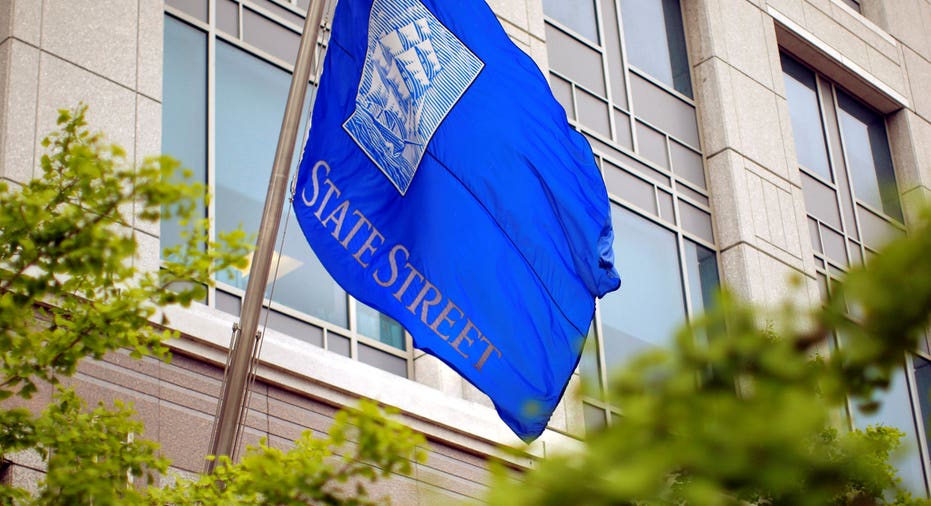Former State Street executive faces U.S. fraud trial

FILE PHOTO: A flag is seen outside the headquarters of State Street Bank in Boston, Massachusetts, U.S., May 18, 2009. REUTERS/Brian Snyder/File Photo (Reuters)
BOSTON (Reuters) - A former executive at State Street Corp is set to face trial on U.S. charges that he participated in a scheme to defraud the bank's clients by charging them secret commissions on billions of dollars in trades.
Jury selection is scheduled to begin on Monday in federal court in Boston in the case of Ross McLellan, a former executive vice president at the bank accused of committing securities fraud and wire fraud.
McLellan is one four former employees of the Boston-based bank who have since 2016 faced charges by the U.S. Justice Department that they engaged in schemes to overcharge institutional clients, allowing State Street to earn millions of dollars.
Two of those former executives - Edward Pennings and Richard Boomgaardt - pleaded guilty last year and are expected to testify at trial, according to court papers. McLellan, 46, has pleaded not guilty and denies wrongdoing.
The case followed a 2014 settlement between State Street and the UK Financial Conduct Authority in which the bank paid a fine of 22.9 million pounds, or $38 million at the time, for charging six clients mark-ups on certain transactions.
In January 2017, State Street agreed to pay $64.6 million to resolve related U.S. criminal and civil investigations and entered into a deferred prosecution agreement.
According to prosecutors, McLellan, Pennings, Boomgaardt and others from 2010 to 2011 conspired to add the secret commissions for trades performed for the six clients, which had been utilizing bank's "transition management" business.
That service helps large institutional clients like pension funds move their investments between and among asset managers or liquidate large investment portfolios with the objective of minimizing the costs of transitioning the investments.
The six clients included a Middle Eastern sovereign wealth fund and Irish and British government pension funds, according to court papers.
Prosecutors say that McLellan also participated in a separate scheme to apply hidden fees to fixed-income trades conducted for funds advised by a New York-based insurer, resulting in about $700,000 in overcharges.
(Reporting by Nate Raymond in Boston; Editing by Leslie Adler)



















